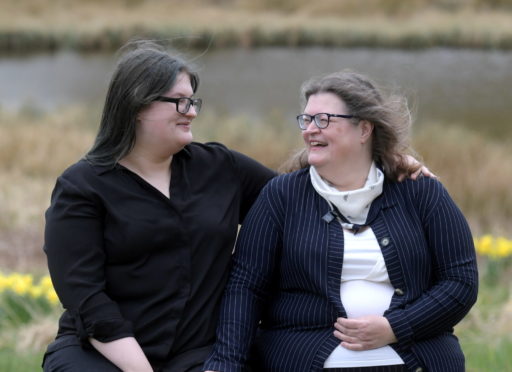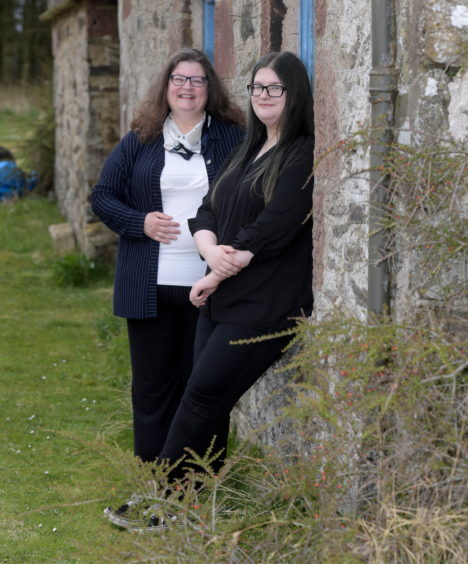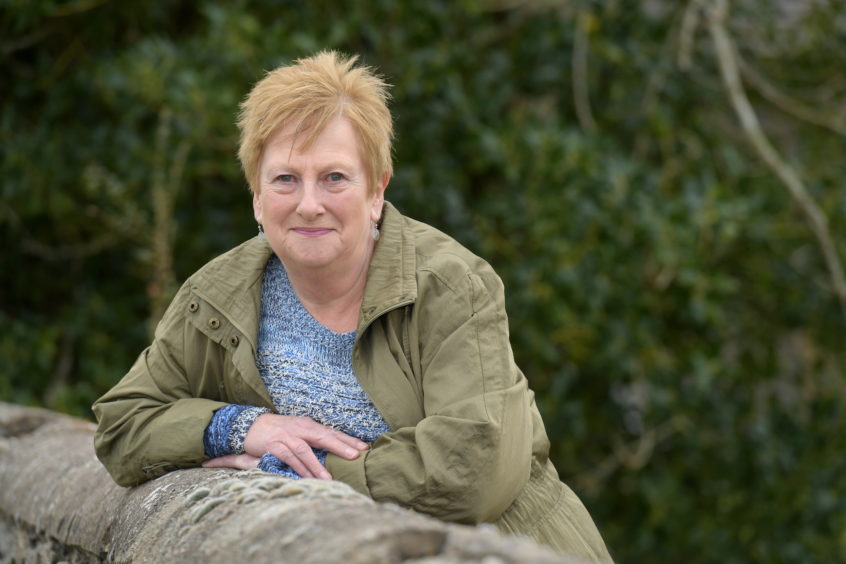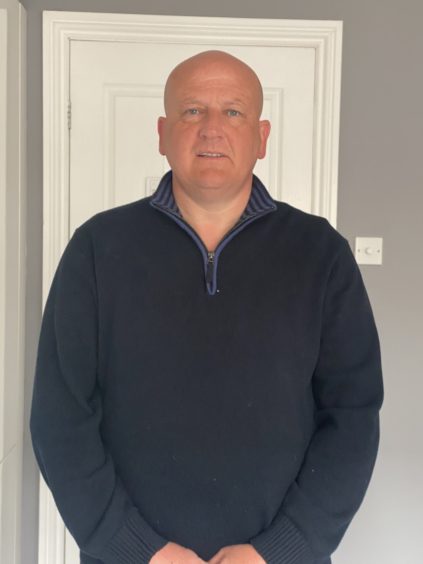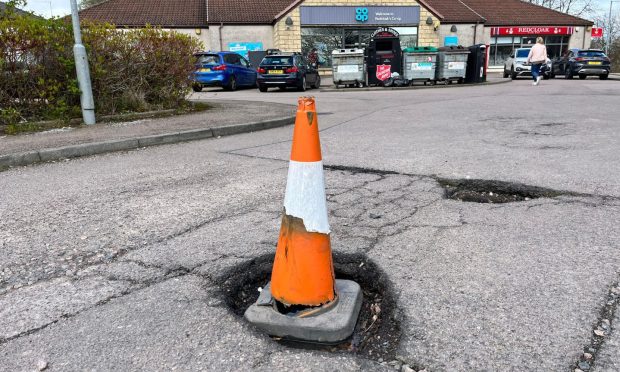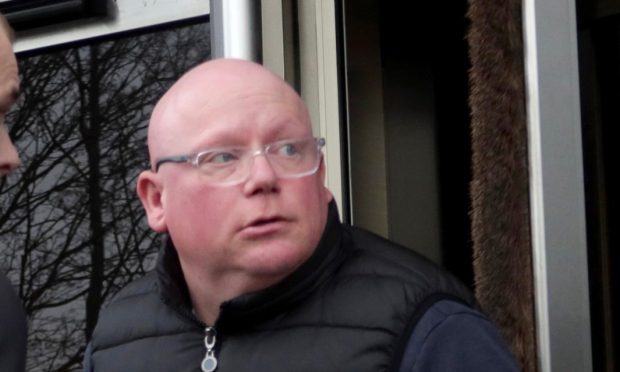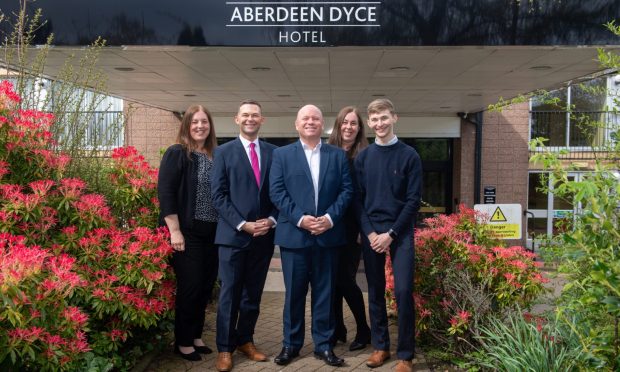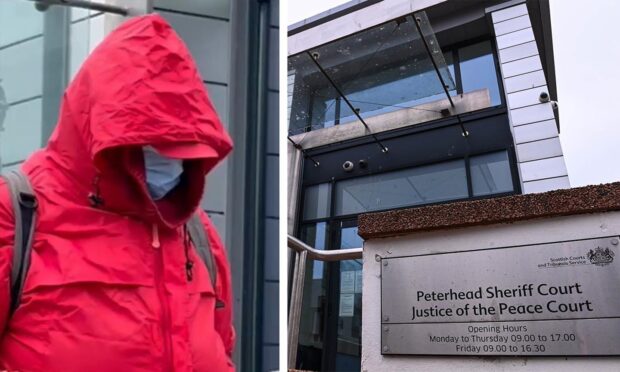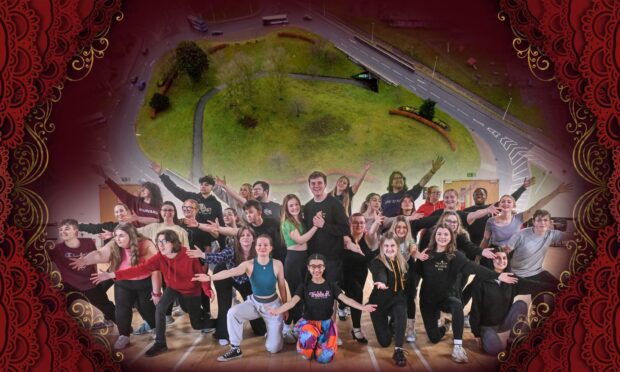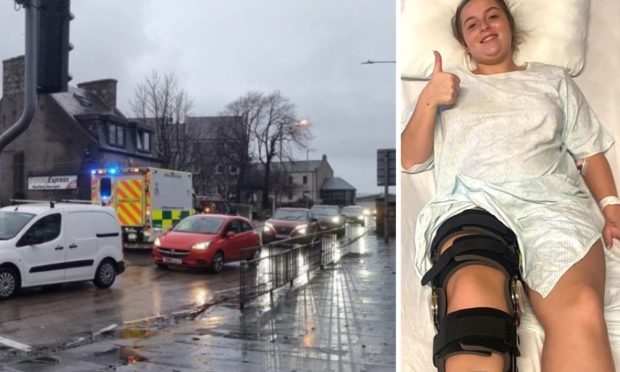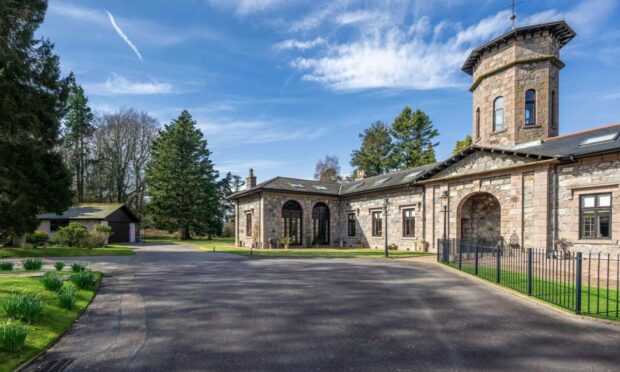“I think the worst thing in my eyes was when the head teacher got all the children together; she told my daughter, Ava, to go and wait in the office.
“Then the children were told that Ava’s dad had died and they weren’t to talk to her about it.”
This is the story of Marie Johnstone and her daughter Ava, whose experience is sadly all too common.
Ava is now 16 and it has been 10 years since her father, Andrew Harper, passed away.
He was 46 years old when he died, five months after suffering a brain stem stroke.
“Ava had only just turned six when she lost her dad and I was left a widow in my 40s,” said Marie.
“She was so young, and as a parent you feel so helpless.”
Marie and Ava were supported through their grief thanks to what was then a little-known charity.
Grampian Child Bereavement Network (GCBN) was in its infancy, but provided invaluable support.
The unsung organisation has gone on to help hundreds, if not thousands, of children and their families across the region.
It was founded by a small but dedicated group of professionals, who mainly worked across the social-care sector.
They realised there was a complete lack of support for children impacted by bereavement.
The charity became part of the ARCHIE Foundation family of funds last year and now trains volunteers to become responders.
The most recent study revealed that in Scotland alone, a parent with dependent children dies every four hours.
As demand has grown, responders have been able to work with children and families on a case-assigned basis and there are also training courses on offer for a range of professionals –including teachers.
With the outbreak of Covid-19, the charity sadly predicts it will be more in need than ever.
As demand surges, the organisation is trying to meet annual running costs in the face of cancelled fundraising events.
We spoke to those who have been instrumental in setting up the charity, alongside service users who believe it has been a lifeline.
For Marie, who lives in Largue just outside Huntly, the activity days offered a way forward, for both herself and Ava.
The pair still attend groups today, and Marie has since become a committee member.
MARIE’S STORY
“I didn’t have a clue where to go after Andrew died,” said Marie.
“I started searching for groups, but didn’t get very far.
“It was the hospital chaplain who gave me a nudge to come to one of the meetings.
“Back then it was more of a signposting service.
“I wanted somewhere where Ava could go and no one would ask where her dad was. Kids can be cruel like that, they don’t mean to be.
“It was the inevitable question that kept popping up.
“It was daunting at first; you are trying to cope with your grief and help your child.
“The organisation has been in our lives ever since.
“I honestly think of it like an extension to my family.”
Marie and Ava slowly started to attend more events and Ava now helps out at activity days for younger children.
The trips out enable both children and parents to connect with those who are in a similar situation and to feel less alone.
“You sit with the parents and talk if you want to talk,” said Marie.
“That two hours for me when I didn’t have to think about anything…you will never know what that little slice of time meant to a one-parent family.”
ANNE’S STORY
Co-founder and MBE Anne Mackintosh believes our under-standing of how grief impacts children has improved over the years.
The retired social worker, who lives in Port Elphinstone, helped set up the group after realising there was a lack of support and understanding surrounding childhood bereavement.
“All the children looked after in care would have their care plans reviewed,” said Anne.
“Quite often in their history, I would notice a significant bereavement.
“It could be that they had lost parents, siblings or grandparents.
“So I asked, what are we doing about bereavement?
“The general response was that these kids had a big team around them, grief was part of their journey.
“Fellow social workers said they struggled to find support.
“They didn’t want to make it worse, to do or say the wrong thing.
“That started a conversation.
“We got a group together to try and build the confidence of those working with children and young people
“We had various backgrounds, ranging from social work, an educational psychologist and the chaplain from the children’s hospital.
“We sat round the table and we all had the same goal; we were all trying to fill a gap.
“I put £20 of my own money in a bank account, that’s how we started off.”
The charity now has annual costs of £55,000, with an expected increase this year.
Anne is perhaps more experienced than most when it comes to childhood bereavement, following her work with families impacted by the Piper Alpha disaster in 1988.
She was called on to lead the social-work team in supporting both bereaved families and survivors and remains in touch with people affected today.
“I led the team, we were met with the unknown,” said Anne.
“We’re going back 30 years, there is so much more known about PTSD nowadays.
“We listened to what people wanted, that was the key – not what you think somebody should need.
“There was a drop-in centre in Aberdeen for one-to-one support.
“We visited virtually every family.
“It was difficult, but you have to remind yourself that it isn’t your grief.
“You’ve got to use your empathy, compassion and listening skills to support someone else.
“We also had a survivors’ group, a widows’ group, a parents’ group.
“We set up a newsletter which went all over the world.
“I learned a great deal, you learned on the ground.
“Two hours after being given the job, I was on live TV.
“I had never spoken to the press before.
“It was an enormous privilege to work with people at such a terrible time in their life.
“The essence of enabling and empowering people to rebuild their own life, it’s a honour.”
Anne was also involved with the horrendous aftermath of the Dunblane massacre, alongside numerous helicopter tragedies in the North Sea.
“I have watched people survive these events in such a way, grief is unique to every situation and circumstance,” said Anne.
“You can be affected no matter what your age is.
“Younger children do not understand the permanence of death.
“That doesn’t come until you’re around eight or nine.
“I call it regrieving – you wake up and realise that person has gone.
“It’s absolutely vital that children are supported through grief, or difficulties can develop later on.
“In our early days, I don’t think people realised the impact of grief on children. People would look at us strangely and say kids were resilient
“That has changed over the last five years especially.
“People are recognising that children’s grief is just as important as anyone else’s.
“I do not think we are all the way there yet, but there has certainly been a huge change.
“Last year we directly supported roughly 150 children across Grampian
“They are so devastated in those early days of grief, they do not know how they will get through.
“You see them begin to recover and learn to live without their loved one, to keep going.
“I always think you need to be kind in life, you’ll get kindness back.”
MALCOLM’S STORY
Malcolm Stewart spent 30 years in the police force, before joining GCBN as a co-ordinator.
The former detective superintendent for the north-east believes the two careers are not dissimilar.
“I had retired and I was looking for something else when I spotted the role,” he said.
“The ideal candidate was someone who had experience with bereavement.
“Having been in the police, you encounter death as part of the job.”
Malcolm helps co-ordinate 25 responders and matches them with families.
“When we get a referral, it either comes direct from the families or from professional bodies such as schools,” he said.
“I contact the nominated parent or carer to try and find out as much as possible.
“It’s vital that we establish what the child knows.
“We do get referrals for advice needed, on how to tell a child someone has died.
“None of the volunteers will deliver a death message, but we can give guidance.
“Death is still an awkward subject for families for obvious reasons.
“To know that we can help in numerous ways, to know you’ve made a difference – that’s quite something.”
GCBN experienced a 60% increase in referrals last year and the figure is expected to rise.
Although training is on hold for responders, applications are still welcome – particularly from male applicants due to a current shortage.
